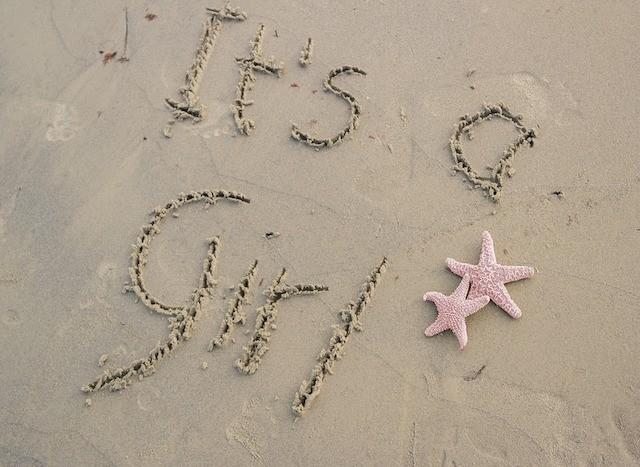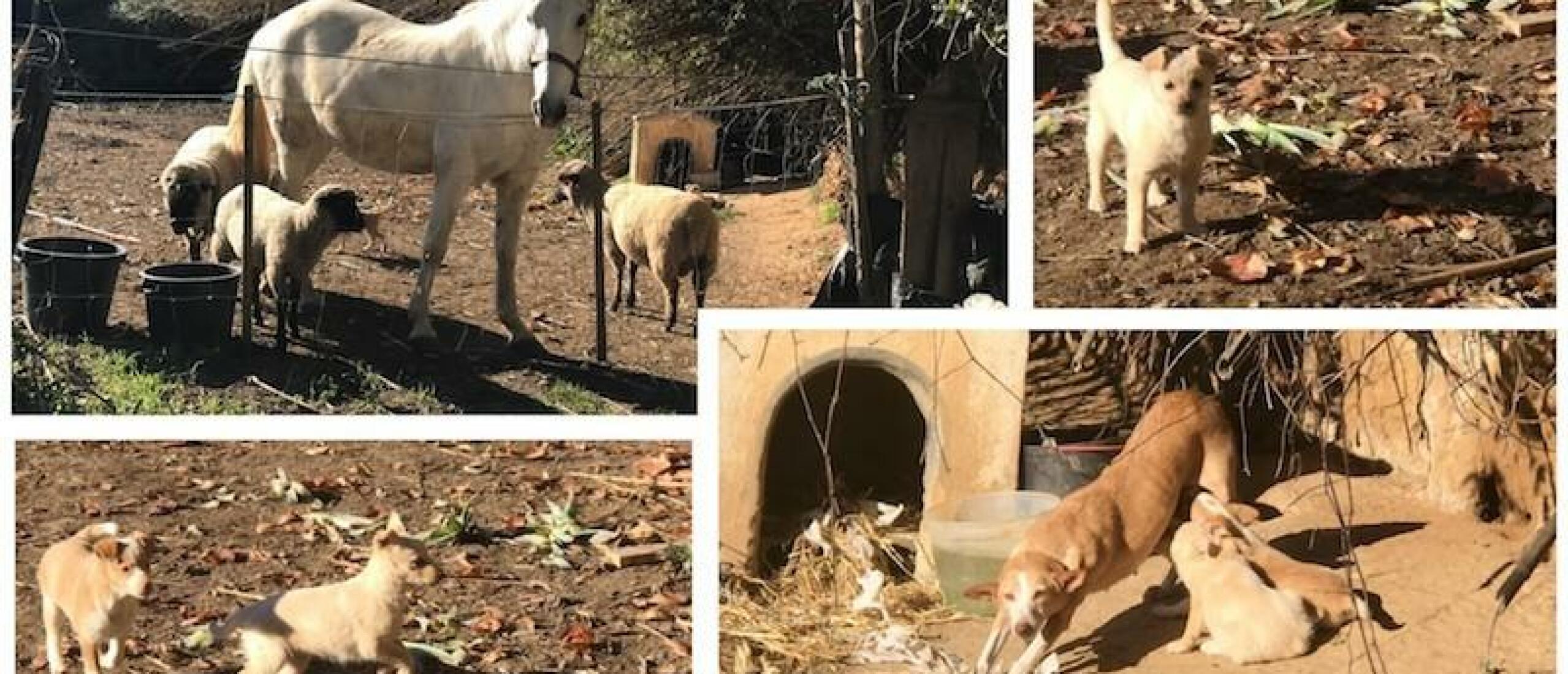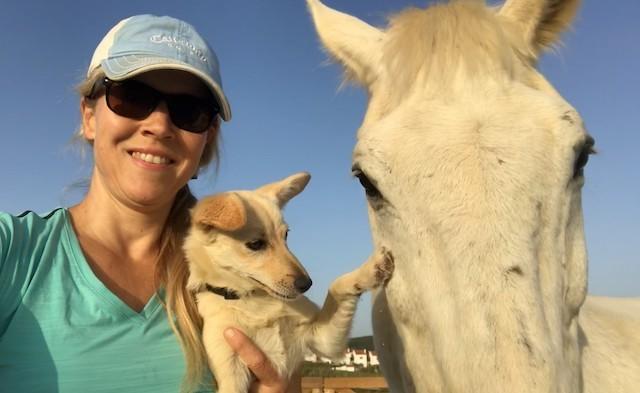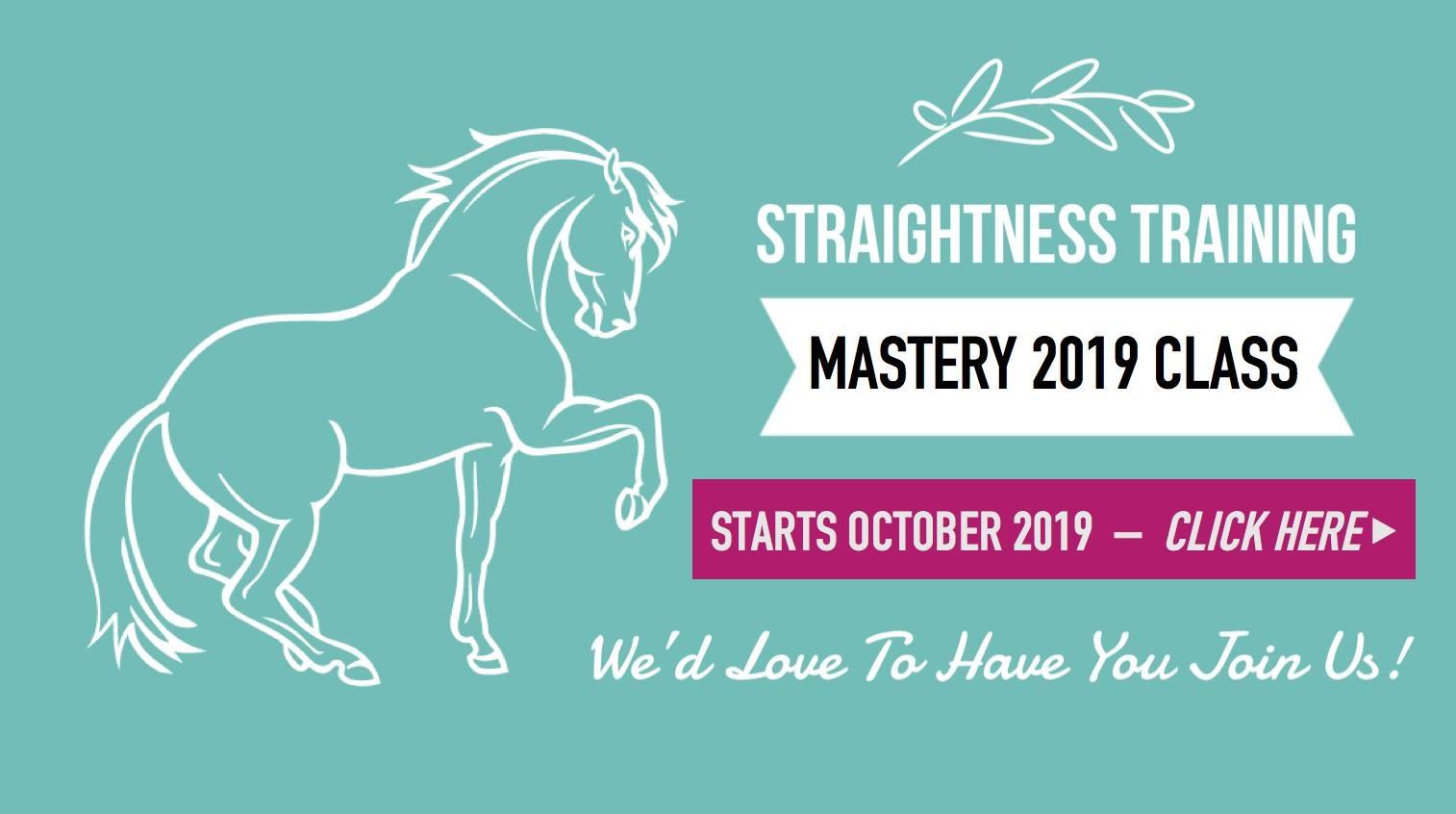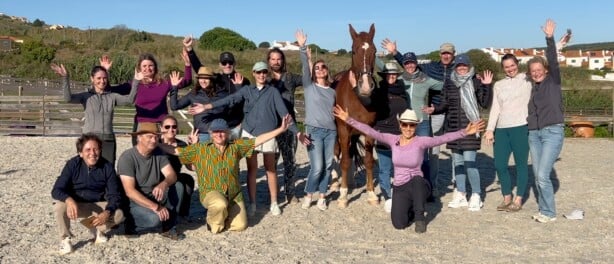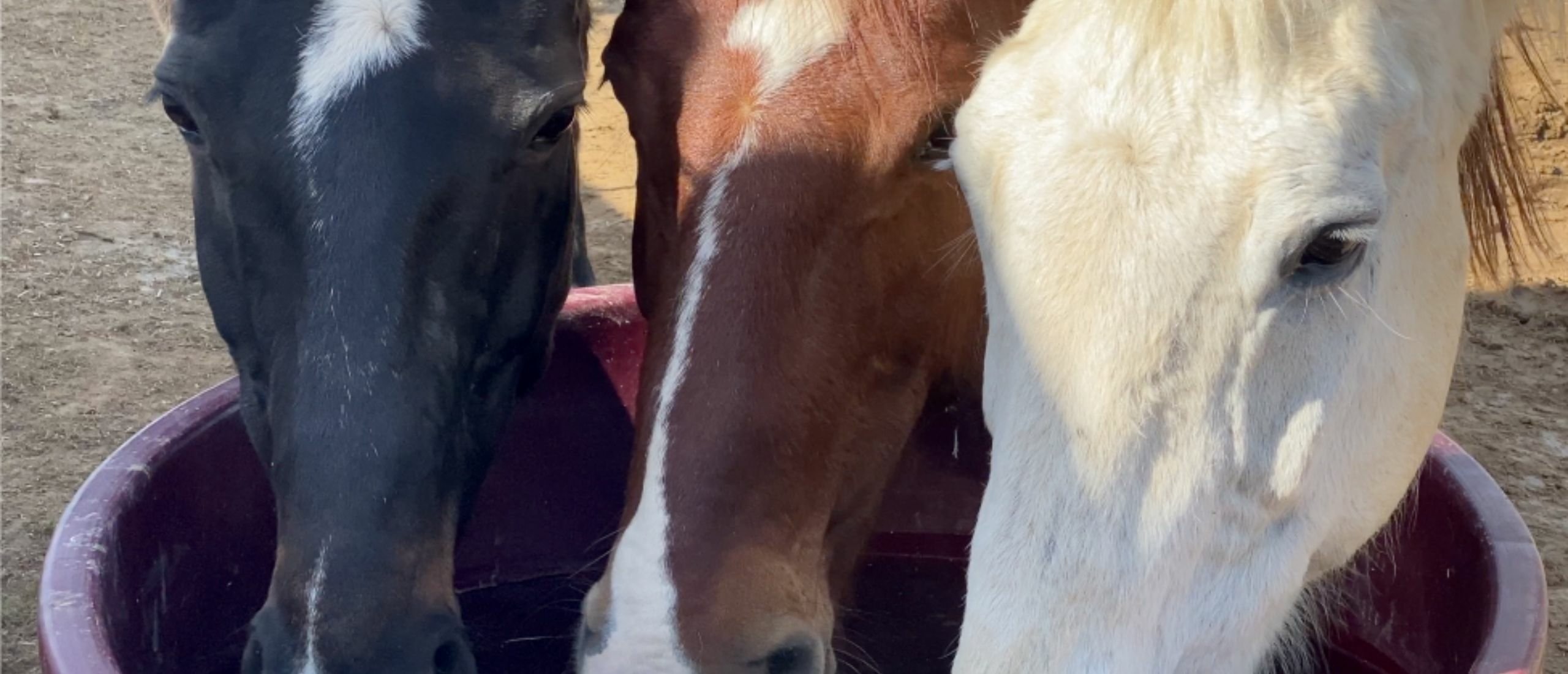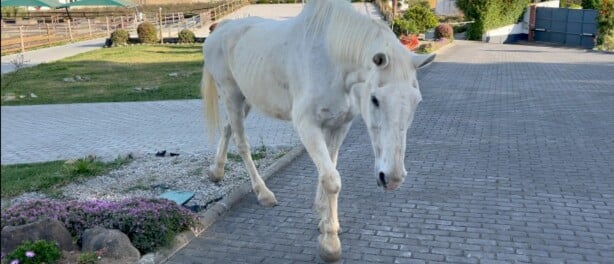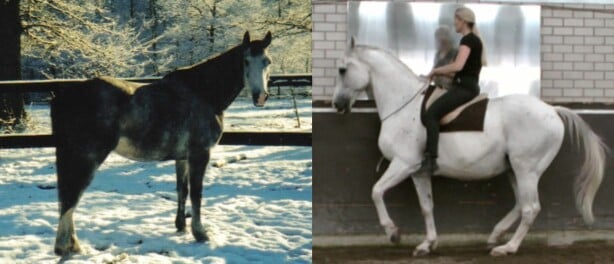In the middle of the winter, we were not looking for a dog, but Wolfee crossed our path.
Wolfee - the blond dog in the video below - was born on December 2 in a nest of three (we discovered this once we adopted her).
In January, her mother, one brother, and Wolfee were housed in a field of one of the farmers who live here in the village.
For a while, they lived together with a calm horse and some lovely sheep:
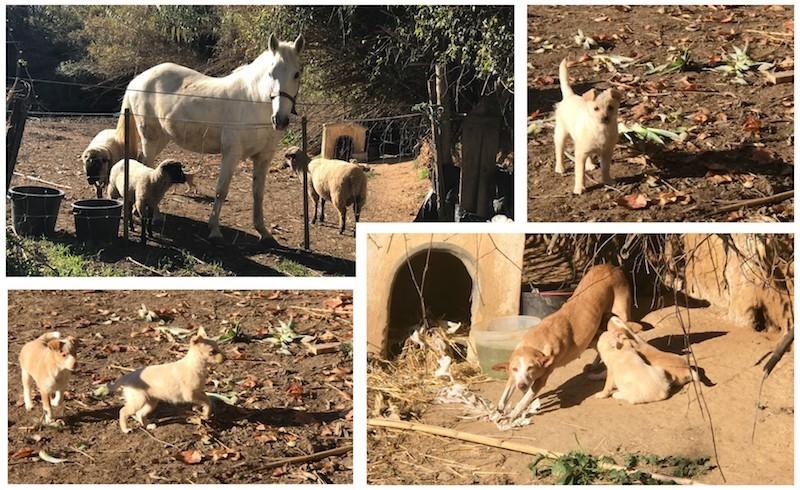
Now, the field is on the other side of the road on which our house is located, so we heard the dogs barking and playing.
That’s how we discovered them, and we made a little video - not knowing that we filmed our future dog:
We wondered what the intention was with the mother and the two puppies, especially after the mother disappeared at the start of February, and a few days later also the brother.
We contacted the farmer and heard that the mother was back in their back yard, the brother went to a little girl, and that Wolfee had become afraid once her brother was captured - so she was now very shy and impossible to catch.
That’s why I asked if we could adopt her – which was okay (and more about how we caught her in one of the next videos).
Now I can understand that when you look at the video, you may form an opinion about what you see.
But we have to realize, that how people treat animals - and what is acceptable behavior within the context of animal affairs - differs from country to country, from culture to culture, from religion to religion, and from community to community.
How The World Treats Animals
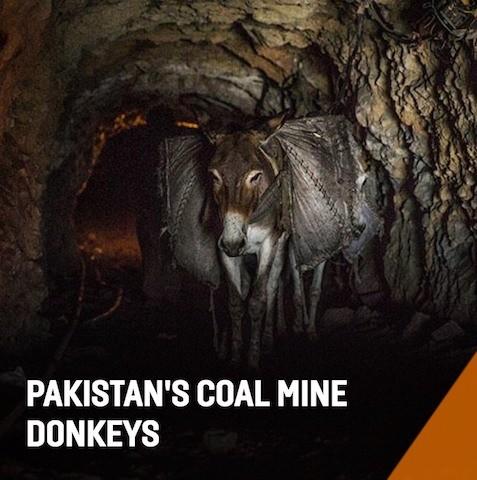
For example:
- In the Western world, eating dogs is the weirdest thing to do; in parts of the Eastern world, it’s quite normal.
- In some religions, eating pork is not allowed; in others, it’s perfectly okay.
- In some countries, fur farming is banned; in other countries, wearing fur is a status symbol.
- In Portugal and Spain, bullfighting is a historical tradition; in other nations, it’s forbidden, or they use cocks or dogs.
- The equestrian community fight rats and mice in their food storage barns; the scientific research industry uses millions of rats, mice and other animals for their experiments.
- The vegan community doesn’t exploit animals in any way; the commercial industry profits from animals for the purpose of food, clothing and anything else.
- In India, a cow is the holiest animal, and their slaughter is banned; in other countries, cow is on the menu every day.
- In the US, bears live in national parks; in Asia, they are kept in chains to make them perform for humans.
- In Africa, the Big Game lives in the wild; in Europe, they use them in the circus, the zoo, and for selfies on festivals.
- In first world countries, horses and donkeys are just for hobby and sport; in third world countries, they are working animals and used for carrying bricks or transporting tourists.
- And there are many other examples.
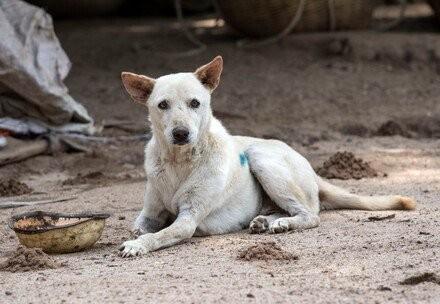
Now when it comes to pets and companion animals, also their circumstances differ from nation to nation, culture to culture, and community to community - here are a few examples:
- In Southern Europe, millions of dogs and cats live on the streets; in the US, millions of companion animals enter the US animal shelters every year.
- In Denmark, it’s not allowed to have a group animal in solitary confinement; in many other European countries, it’s allowed to keep horses, rabbits and other small pets isolated from other animals.
- In cities, many cats live in apartments and flats and never come outside; in the countryside, there are semi-wild cats, and also many dogs live permanently outside, trapped at the end of a chain or in a small pen.
- Many competition horses are kept 23h in boxes; many farmer horses have 24/7 turnout but are neck- or leg-chained when there is no fence.
Most of the time it’s not against “the law” what people are doing with their companion animal - as long as they have food, water, shelter, and are in good physical health, all the “legal” requirements are satisfied.
Besides that, there are many people who genuinely don’t have any idea that what they’re doing is not healthy for the animal psychologically seen.
So it’s easy to form a fixed opinion and to go on a rant about what’s wrong with the world in general, or in a specific situation in particular.
But when we point a finger, there are always pointing three fingers at us. And if we accept ourselves and judge others, we will only have morality, no spirituality.
So instead of ranting, raving, finger-pointing, complaining, blaming, or making an emotional drama, we can try to see the bigger picture and take responsibility.
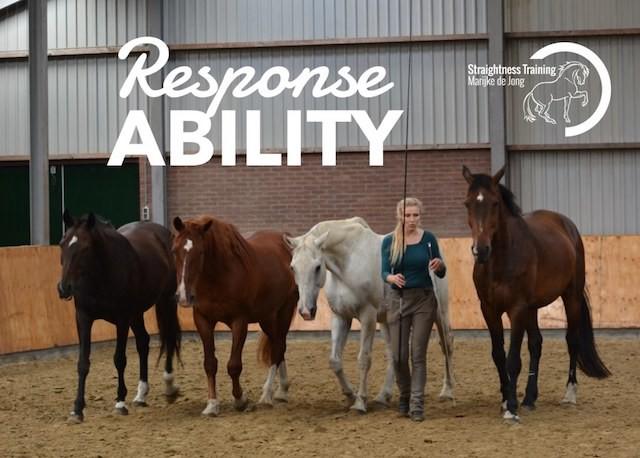
Response-Ability
Our ability to act is limited, but our ability to respond is unlimited.
We can respond to every situation that we seem is out of harmony, or out of balance, to the best of our ability.
What we can do we do, what we cannot do, we cannot do.
Maybe we are not able to go to Pakistan to help the donkeys, but we can support an organization as “Brookes Hospital” who dedicate their lives to improve the circumstances of working horses and donkeys.
And as a tourist, we can decide not to take selfies, walks or rides with any animals.
As a "party animal" we can choose not to visit parks and festivals where you can feed animals to watch them perform tricks.
And we can decide not to visit venues where you can see animals fight or compete.
Instead, we can give the money that we save by not going to those places to organizations such as “Four Paws” who are on the mission to rescue bears, stray dogs, and many, many other animals in crisis.
Since there are many people who are walking their talk - who work with country, city, or county legislators to change laws and ban chaining, solitary confinement, and other animal cruelty - we can make a choice to support those foundations who make the world a better place for animals.
And we can choose an organization to which we feel strongly connected, and respond to them and support them to the best of our ability - whether it's with a donation, joining a petition, involving as a volunteer, or applying for a job.
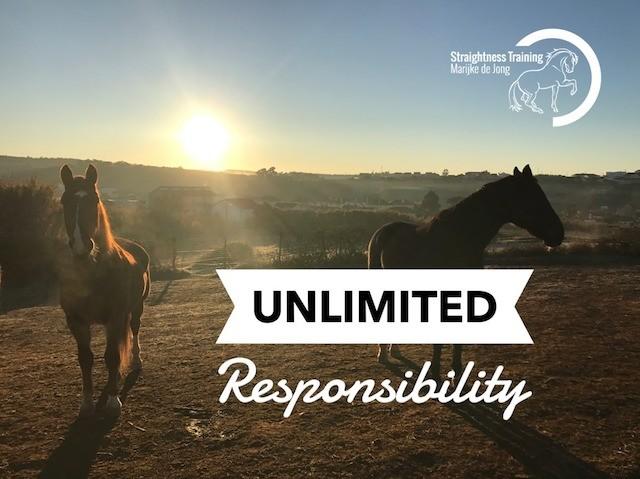
On a smaller scale, we can decide not to eat meat, or only organic meat, or only twice a week - we have unlimited options to take responsibility.
And remember this anecdote:
The Starfish Story
A Buddhist monk was walking along the beach one morning with one of his disciples.
Thousands of starfish had been washed up onto the shore after a fierce storm.
Stooping down, the monk lifted a single creature and returned it to its home in the sea.
The disciple asked why the master did this when it made so little difference to the mass of stranded starfish.
As the monk lifted another single starfish, he replied:
“It makes a difference to this one.”
And he tossed it back into the sea.
